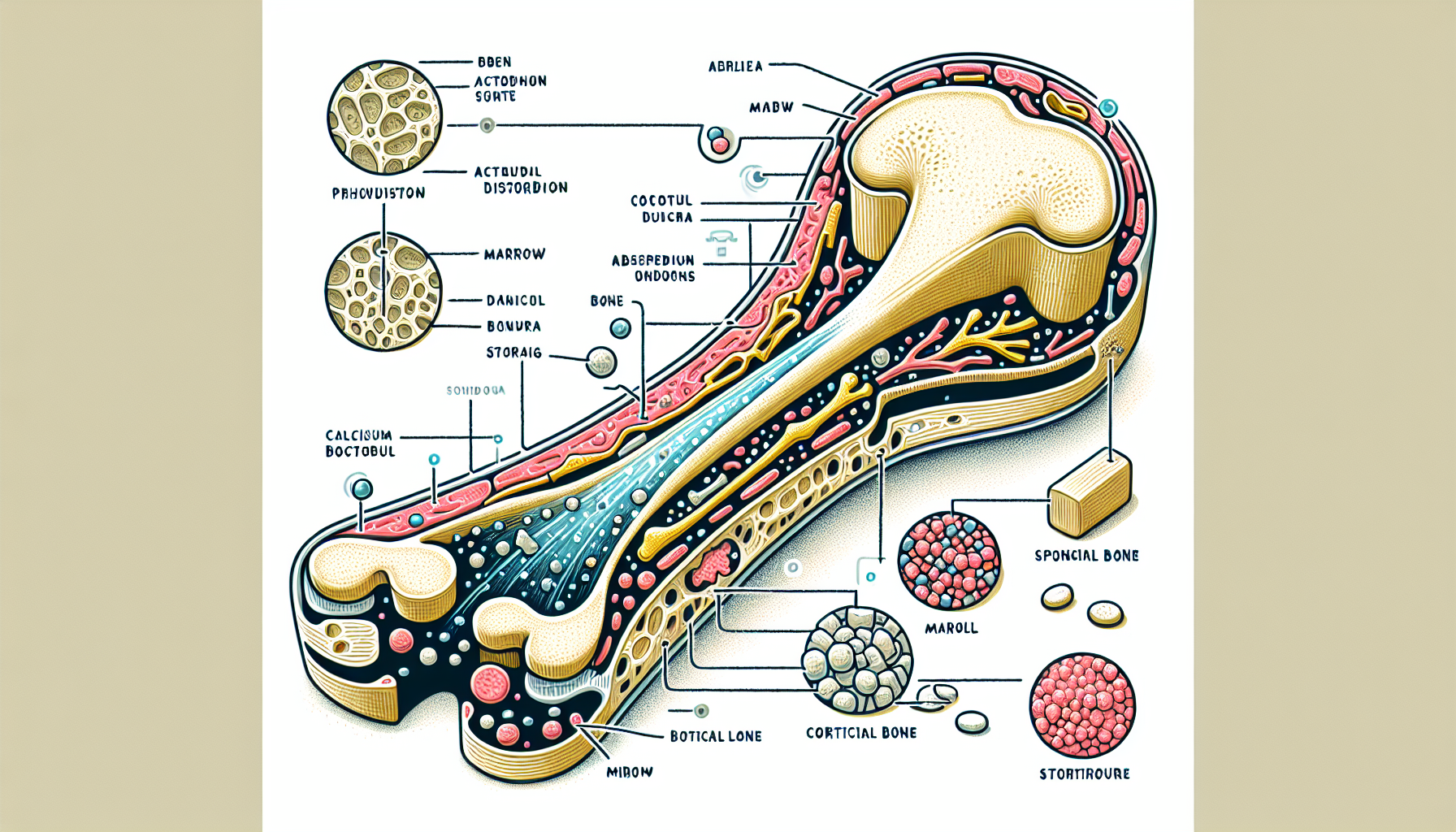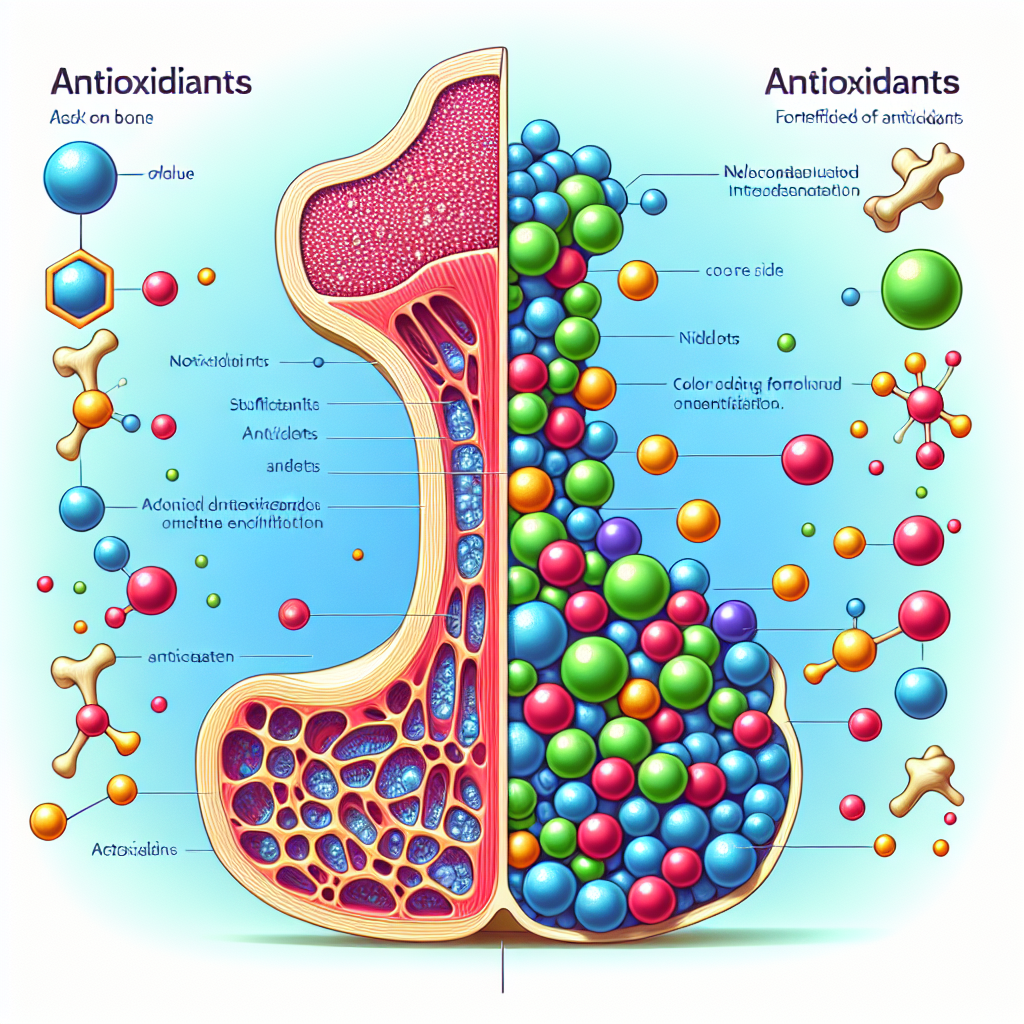Vitamin E, known primarily for its antioxidant properties, has recently come under the spotlight for its potential role in maintaining and improving bone density and strength. This fat-soluble vitamin, found naturally in various foods and available as a dietary supplement, might be a key player in bone health, a critical aspect of overall well-being.
Understanding Bone Health
Bones are living tissues that continually break down and rebuild throughout an individual’s life. Healthy bones are dense and strong, with a sturdy matrix that provides support and resilience. Bone density is a measure of the amount of minerals, mainly calcium and phosphorus, contained in a specific volume of bone. It’s an indicator of bone strength and overall bone health.
For an in-depth exploration of bone health, consider reading about Bone Health which provides comprehensive insights into maintaining strong bones throughout different stages of life.
Vitamin E: An Overview
Vitamin E is a group of eight fat-soluble compounds that include four tocopherols and four tocotrienols. Alpha-tocopherol is the most abundant and biologically active form in the human body. It’s known for protecting cells from oxidative stress caused by free radicals, which are unstable molecules that can damage cellular components like DNA, proteins, and lipids.
The Connection with Bone Density
Emerging research suggests that vitamin E affects bone remodeling, the process through which bone tissue is continuously renewed. Remodeling involves two main types of cells: osteoblasts, which build up the bone, and osteoclasts, which break down bone tissue. The balance between these two actions determines bone density.
Vitamin E appears to influence this balance by promoting the activity of osteoblasts and inhibiting osteoclasts. This effect could potentially lead to increased bone formation and reduced bone resorption, resulting in stronger bones.
Antioxidant Properties and Bone Health
Oxidative stress is a known risk factor for many chronic diseases, including osteoporosis, a condition characterized by weak and brittle bones. The antioxidant properties of vitamin E can mitigate oxidative damage in bone tissues, potentially reducing the risk of osteoporosis and related fractures.
The Role of Vitamin E in Specific Populations
Postmenopausal Women
Postmenopausal women are particularly susceptible to bone loss due to decreased estrogen levels, which can lead to osteoporosis. Vitamin E supplementation has been studied as a potential strategy to combat this issue. An article titled Nutritional Tips for Maximizing Bone Density Post-Menopause discusses dietary strategies for maintaining bone density, where the role of vitamin E could be considered.
Athletes
Athletes, especially those engaged in high-impact sports, require strong bones to withstand the physical demands of their activities. The importance of monitoring bone density in athletes is highlighted in The Importance of Bone Density Monitoring in Athletes, which could be complemented by understanding the potential benefits of vitamin E for bone strength.
Elderly Population
As individuals age, they experience a natural decline in bone density, increasing the risk of fractures. Strategies for prevention and management of bone density issues in the elderly are critical, as discussed in Bone Density Issues in the Elderly: Strategies for Prevention and Management. Vitamin E’s role in bone health could be a valuable aspect of these strategies.
Dietary Sources of Vitamin E
Vitamin E is found in a variety of foods, including:
- Nuts and seeds (almonds, sunflower seeds)
- Vegetable oils (sunflower, safflower, and wheat germ oil)
- Green leafy vegetables (spinach, Swiss chard)
- Fortified cereals
Maintaining a balanced diet rich in these foods can help ensure adequate intake of vitamin E, which may support bone health.
Supplementation and Safety
While dietary sources are the best way to obtain nutrients, vitamin E supplements are available for those who may not get enough from food alone. However, it’s crucial to consult a healthcare provider before starting any supplement, as high doses of vitamin E can pose health risks and interact with certain medications.
External Supportive Resources
To further understand the role of vitamin E in bone health, consider these niche resources:
- The American Journal of Clinical Nutrition provides peer-reviewed articles on the effects of nutrients on bone density.
- The International Osteoporosis Foundation offers a wealth of information on bone health, including the impact of vitamins.
- The National Institutes of Health Office of Dietary Supplements provides detailed fact sheets on vitamin E and its health implications.
Current Research and Future Directions
Scientific studies continue to investigate the relationship between vitamin E and bone health. While promising, more research is needed to fully understand the mechanisms involved and to establish definitive guidelines for vitamin E intake for bone health.
Conclusion
Vitamin E’s potential role in promoting bone density and strength offers an exciting avenue for enhancing bone health. Integrating a diet rich in vitamin E, along with a healthy lifestyle that includes weight-bearing exercises and adequate calcium intake, could be a comprehensive strategy for maintaining strong bones throughout life.
In summary, the interplay between nutrients like vitamin E and bone health is complex and multifaceted. As research progresses, the importance of a holistic approach to bone health that includes nutrition, exercise, and lifestyle factors becomes increasingly clear. By staying informed and proactive, individuals can take meaningful steps toward ensuring their bones remain robust and resilient.



